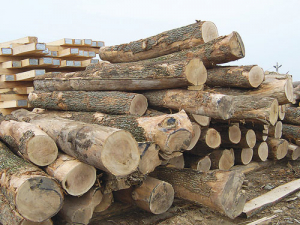Forestry scholarship programme invests in young Kiwis
The forestry sector continues to attract young New Zealanders, claims New Zealand Forest Services as seven applicants join the Ngā Karahipi Uru Rākau – Forestry Scholarship programme.
 Te Uru Rākau - New Zealand Forest Service has announced it will look into investing in a new biofuels industry.
Te Uru Rākau - New Zealand Forest Service has announced it will look into investing in a new biofuels industry.
New Zealand Forest Service (formerly Forestry New Zealand) says it is laying the foundations for a new biofuels industry, to turn forestry waste into a potential billion-dollar industry.
The government agency will also be working on a business case with help from global investment consulting service Indufor Asia Pacific Ltd.
“Establishing a biofuels industry in New Zealand will require significant investment, so we’re moving ahead with developing the business case for this investment,” says Jason Wilson, director of sector investments at Te Uru Rākau – New Zealand Forest Service.
Wilson says research shows a biofuel industry would help New Zealand meet its emissions targets and provide jobs and new industries in regional centres.
“Tackling climate change is an ongoing priority for Government. Investigating the potential to manufacture biofuels from New Zealand wood could supercharge our efforts and deliver significant returns for our forestry and wood processing sector, rural communities, and economy.”
Biocrude, liquid biofuels and solid biofuels are made from the residues of trees milled in New Zealand and can help replace traditional fossil fuels such as coal and petroleum.
“A key focus for the forestry and wood processing sector is maximising the economic and environmental benefits from wood through innovation, as it’s a renewable and sustainable asset,” says Wilson.
“The business case will involve significant analysis and will underpin a core part of the Industry Transformation Plan (ITP) for forestry and wood processing currently in development. The ITP will include a focus on the emerging bioenergy role the sector can play.”
The ITP aims to utilise New Zealand’s forest resources by increasing domestic processing and a draft of the plan is expected later this year for the sector to consider. It is one of six transformation plans launched by Government, aimed at growing more innovative industries in New Zealand and lifting the productivity, sustainability, and inclusivity of key sectors.
“We’re excited by the potential of producing biofuels in New Zealand and we are committed towards working with the forestry and wood processing sectors to explore this opportunity, which could have lasting benefits for New Zealand,” says Wilson.
Recent weather events in the Bay of Plenty, Gisborne/Tairawhiti, and Canterbury have been declared a medium-scale adverse event.
DairyNZ's chief executive Campbell Parker says the 2024/25 dairy season reinforces the importance of the dairy sector to New Zealand.
A New Zealand agribusiness helping to turn a long-standing animal welfare and waste issue into a high-value protein stream has won the Australian dairy sector's top innovator award.
OPINION: A bumper season all around.
Dairy Women's Network (DWN) has announced that Taranaki dairy farmer Nicola Bryant will join its Trust Board as an Associate Trustee.
Rural Women New Zealand (RWNZ) says it welcomes the release of a new report into pay equity.

OPINION: A mate of yours truly reckons rural Manawatu families are the latest to suffer under what he calls the…
OPINION: If old Winston Peters thinks building trade relations with new nations, such as India, isn't a necessary investment in…